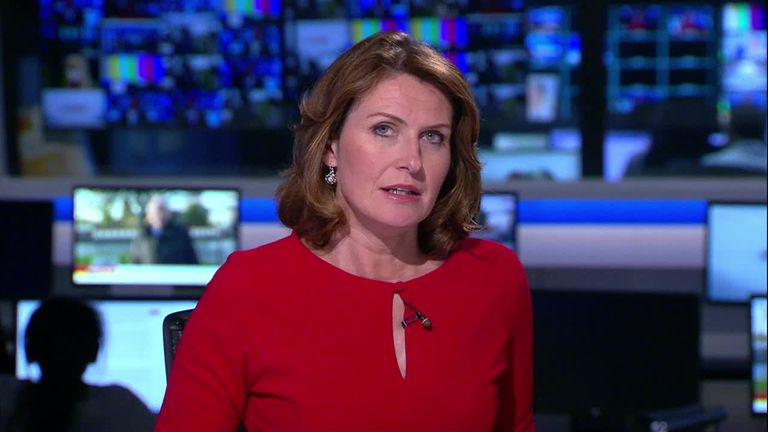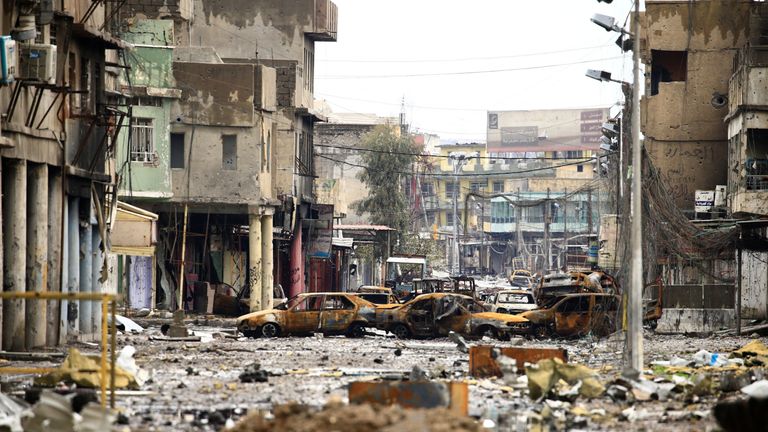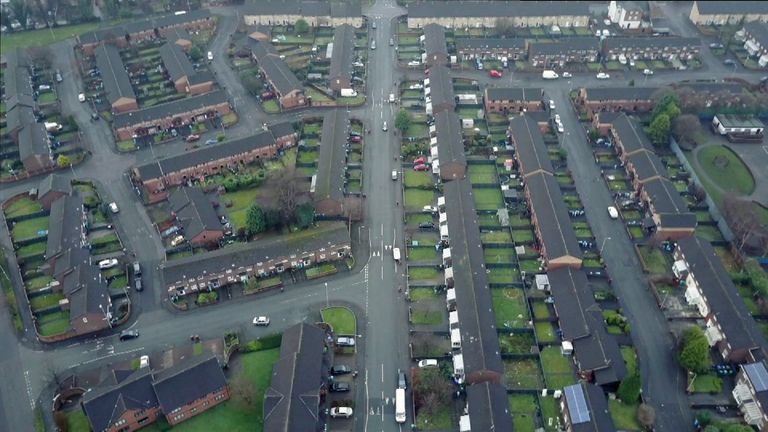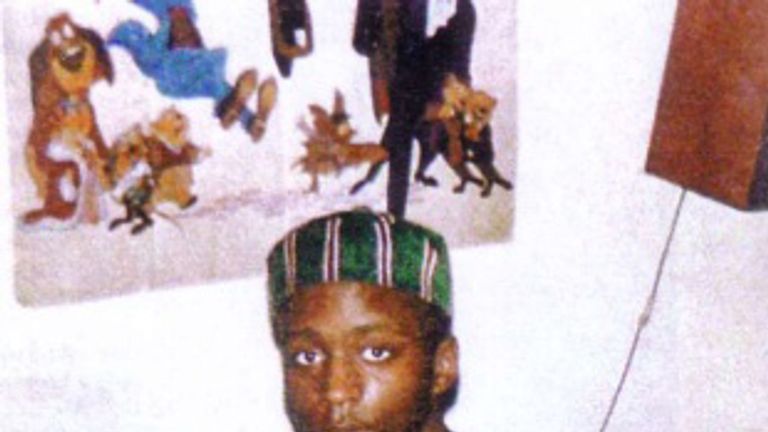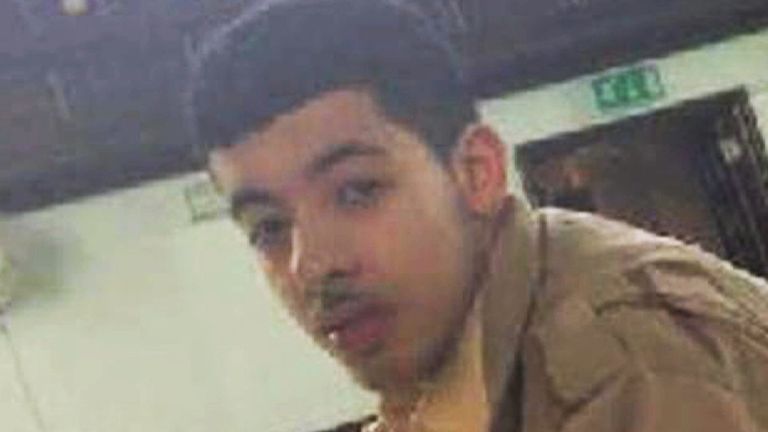The IS Files: Unmasking Britain's terrorists

Thursday 7 December 2017 16:59, UK
Andy Hughes, Crime and Home Affairs Producer
In March 2016, near Turkey's border with Syria, Sky News was handed a USB stick by a jaded Islamic State fighter.
At the time we had no idea what it contained, but upon our return to London we discovered it was a goldmine of information about the inner workings of IS and those committed to its cause.
Twenty months later and the unprecedented leak has been used to convict a close friend of the Manchester bomber.
So what else was on that USB stick? Just how deep are the roots of this deadly terror cell in Britain? And how far has the disease spread?
This is the story of The IS Files.
:: How did we get the files?
The USB stick came from a man claiming to have become jaded with life as an Islamic State fighter. At the time, we had no way of knowing if he was telling the truth.
He was.
The memory stick was flown back to London and plugged into a laptop. It contained a folder, and within that was a remarkable amount of information about the inner workings of IS.
Thousands of documents containing names, ages, addresses, next of kin details, occupations and telephone numbers of IS fighters from around the world: the biggest ever leak of an active terror organisation.
The former head of MI6 said they provided a 'goldmine' of information for the authorities and he wasn't wrong. Hundreds of previously unknown terrorists were suddenly unmasked.
This was in March 2016. Today, nearly 20 months later, the files are the reason a terrorist with deadly intent is behind bars. It is the first time evidence of this kind has been used to convict a returning jihadi fighter.
:: Joining the dots
The files led us to London, Plymouth, Birmingham and Manchester. We turned up at the doorsteps of parents and siblings, cousins, aunts and uncles of young jihadis who had chosen to turn their backs on their home lives.
Each time, we saw the devastating impact those decisions had on the people back home.
But it was on the housing estates of south Manchester where we made the most shocking discovery of the investigation.
Because we had names and addresses of young jihadis, we were able to plot where they had come from. And as we added name after name to the list, a disturbing pattern jumped out.
These young jihadis were from the same neighbourhood, in some cases the same street. They had grown up together, gone to school together, played football together.
But later in their lives they swapped the playing fields of Moss Side for mosques in south Manchester.
It was there they found other young men who they became friends with. Eventually we would figure out that they all had one thing in common.
:: The Manchester Terror Cell
One name kept cropping up in the Manchester files. That was the name Abu Qaqa al-Britani - or Raphael Hostey.
He was listed as the "sponsor" or "recruiter" for the entire cell.
Hostey - known as Abu Qaqa al-Britani - was the first of this gang to travel to the so-called caliphate. He was born in Manchester in 1992 and later became a graphic design student at Liverpool John Moore University.
According to the files, he joined in October 2013. We now know he was in contact with his friends and encouraged them to join him in Syria. Nearly all of them answered his call.
Abdallah was born in Algeria to Libyan parents in 1991, but spent most of his life in Moss Side.
His father, Nagah Abdallah, was an anti-Gaddafi militant. Mohammed said in his trial he wanted to follow in his father's footsteps. In 2011, he did just that when he travelled to Libya to fight in the uprising.
He returned to Manchester after the Gaddafi regime was toppled, but left again three years later and made his way to Syria to join IS and worked as a sniper.
In September 2016 he was arrested at Heathrow airport and later tried by a jury. Now 26, he is a convicted terrorist.
:: Abdalrouf Abdallah
Mohammed's younger brother Abdalrouf looked up to him and followed the same path.
He joined his older brother in the Libyan uprising, but was shot in the back and paralysed. He returned home to Moss Side in a wheelchair.
The brothers and their friends plotted together to join IS. Because of his immobility, Abdalrouf stayed home and became the facilitator and fundraiser.
In July 2016, he was found guilty of funding terrorism and jailed for five-and-a-half years.
:: Raymond Matimba
Matimba was best friends with Mohammed Abdallah and they were well-known drug dealers on the streets of Moss Side.
Zimbabwe-born Matimba was known as a "hard man" on the gang scene of south Manchester, before he was radicalised by Hostey.
When he joined IS in July 2014 - the same time as his best friend Mohammed - he adopted the name Abu Qaqa al-Britani al-Afro, and became the group's "enforcer". He is believed to have been killed in combat.
:: Stephen Gray
Perhaps the most surprising member of this cell, Gray is an Iraq War veteran, where he served as a gunner in No 2 Squadron for the RAF.
He was born to Christian parents and converted to Islam after he returned disaffected with military life.
In July 2016, he pleaded guilty to terror offences and was jailed for five years. He shares the same prison with his good friends - the Abdallah brothers.
Fiddler was born in Manchester in 1966 and raised in Moss Side by churchgoing parents.
In the 1990s he turned to Islam while attending university in his home town. He told his family he was going backpacking in Pakistan just weeks after 9/11. In 2002 he was sent to Guantanemo Bay after US forces found him in a Taliban prison.
Two years later he was released and received £1m in compensation.
He joined IS with the rest of the Manchester cell and hit the headlines in February 2017 when he became a suicide bomber in Mosul.
:: The Manchester Bomber Connection
Salman Abedi was not named in The IS Files obtained by Sky News, but he was being monitored by MI5 and his family were known to the authorities.
His threat level was downgraded 18 months before he murdered 22 people at the Manchester Arena in May 2017.
A day after the attack, Sky News linked him to the Manchester cell when we discovered he was best friends with Abdalrouf Abdallah and good friends with older brother Mohammed. In fact, they lived just streets away.
They all visited the Al-Rahman Islamic Centre in Moss Side together. Members there told us that Abedi used to push paralysed Abdalrouf in his wheelchair and place him at the back of the mosque to pray.
The members say they are "horrified and sickened" by how their former members turned out.




